-
To
chevron_right
Anti-Piracy Group BREIN Ramps Up IPTV Actions Under New Leadership
news.movim.eu / TorrentFreak • 3 June • 4 minutes
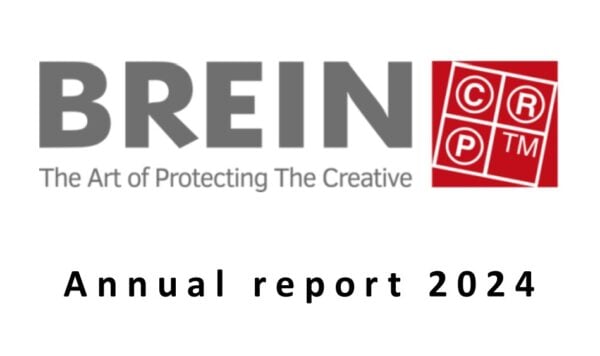 BREIN has just published its latest annual report, providing insights into the priorities of the organization and the progress being made.
BREIN has just published its latest annual report, providing insights into the priorities of the organization and the progress being made.
This was BREIN’s first year under new leadership. After Tim Kuik retired in 2024, Bastiaan van Ramshorst became the new director flanked by Birre Büller, the new head of legal affairs.
BREIN’s 2024 Annual Report
Last week, the group published its 2024 annual report which shows that anti-piracy activities continue undeterred. BREIN completed 339 cases last year, of which 179 were marked as extensive investigations. As a result, 40 settlements were reached, including 7 “knock & talks”.
In addition to these dedicated investigations, BREIN also continued its regular operations. This includes updating the pirate site blocklist used by local ISPs, to which 525 unique domains were added last year. At the end of 2024, 574 domains were blocked, up from 208 at the start of the year.
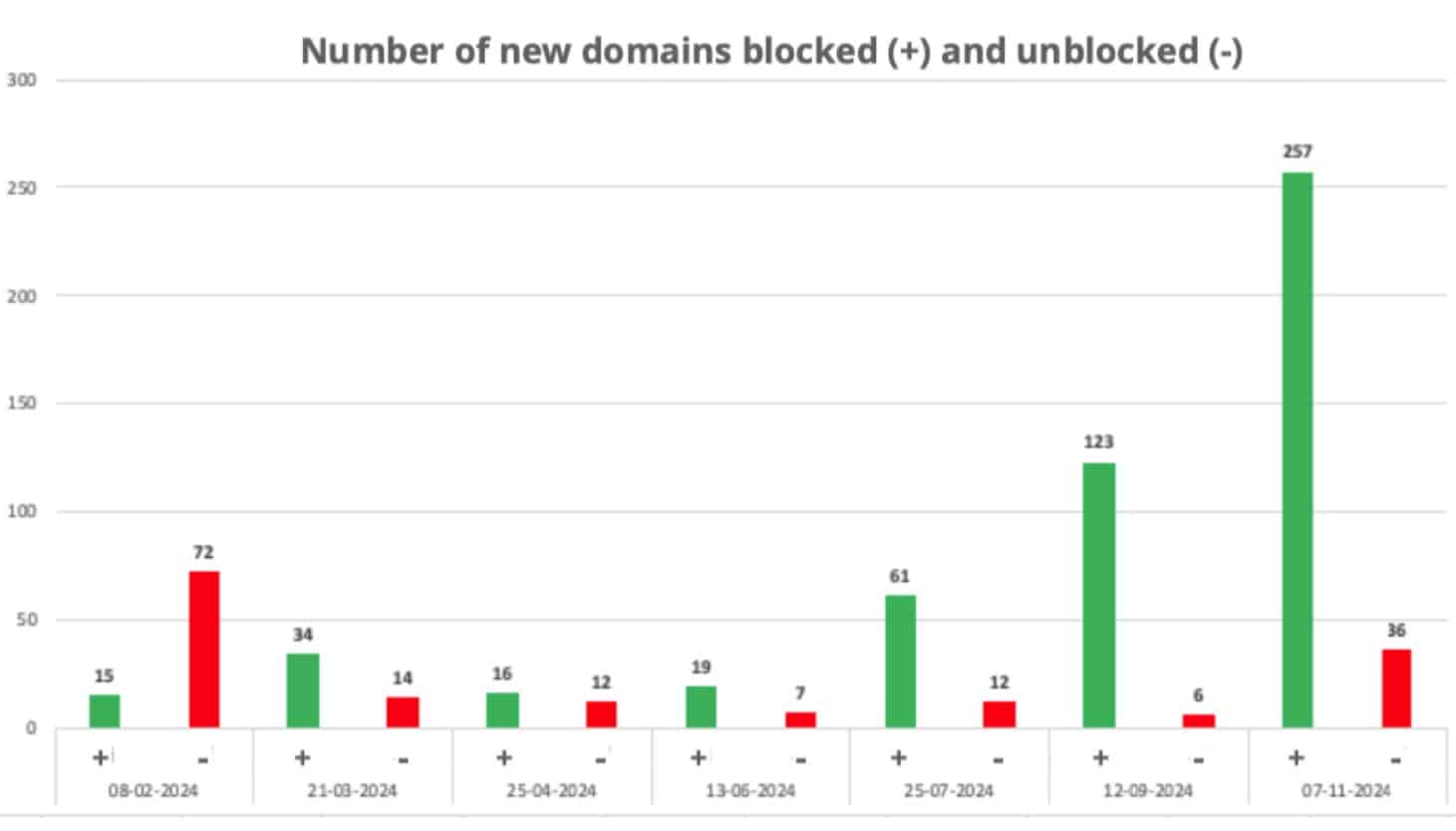
The new target domain names were also reported to Google, which voluntarily removed these 525 domains from its search results. That comes in addition to the 166,945 individual Google search results BREIN asked the company to remove.
IPTV Action Intensifies
The voluntary cooperation of Google is noteworthy and doesn’t stop at delisting blocked domains. The company also helped to prevent the promotion of pirate IPTV services through its advertising business. This led to the drastic decision where Google updated its policy to no longer allow ads for the search term “IPTV”.
As a result of this policy change, BREIN reported fewer IPTV advertisements last year. According to BREIN, action by Google was in part taken in response to complaints from the Dutch anti-piracy group.
These restrictions are part of a broader theme in which IPTV is increasingly recognized as a major piracy threat. According to BREIN, IPTV is now considered the biggest threat to the audiovisual content industry.
“The Dutch fiscal police (FIOD) officially designated IPTV as a phenomenon in 2024. This means higher priority and more budget for combating illegal IPTV. As a result, there is more room for investigation and ultimately more criminal cases,” BREIN writes
“Illegal IPTV also has the full attention of Europol, Eurojust and the EUIPO. Among other things, this regularly leads to criminal actions in the Netherlands at the request of foreign investigative agencies. Where possible, BREIN and foreign sister organizations of BREIN contribute to this.”
Criminal Action and Boots on the Ground
The added attention to the IPTV problem has resulted in several new criminal referrals by BREIN last year. The group expects that this will lead to new arrests and potential prosecutions in 2025, but as these investigations are ongoing, further details are currently unavailable.
“These cases are expected to result in arrests in 2025. Because of ongoing criminal investigations, BREIN can only make announcements about them after arrests have been made,” BREIN writes.
These IPTV actions are not limited to online operations; they also extend to offline marketplaces. Since the Beverwijk Bazaar is seen as a hotspot for this activity in the Netherlands, BREIN has signed an agreement with the market to tackle the problem.
If stalls are caught selling illegal IPTV services and devices, in the first instance they receive a warning. If the activity continues, they can be fined, and if that does not solve the issue, tenants can lose their lease.
“Two tenants had their lease terminated in 2024 based on the agreements made,” BREIN writes, adding that “repeated checks and purchases at the Beverwijk Bazaar remain necessary to identify and deal with IPTV traders.”
AI, NL and More
In addition to the strong focus on IPTV, artificial intelligence is also flagged as a major threat. The group has identified several Dutch datasets that partly consist of copyright-infringing material and successfully shut these down .
“BREIN conducted extensive investigations into infringing datasets on which Generative AI models are trained and turned into unlawful AI models and was able to successfully complete the first AI investigations,” BREIN writes.
Another series of Dutch-focused achievements came after the registry for .NL domains updated its policy to no longer allow intermediaries to register domain names. The EURid registry (.eu) has a similar policy which enabled BREIN to make 16 .NL and 7 .EU domains inaccessible .
These changes are part of broader efforts to involve more intermediaries in the anti-piracy fight. For example, BREIN says it signed a confidential agreement with several Dutch hosting providers who will enforce a proper know-your-customer policy. That could lead to more enforcement action in the future.
All in all, it’s been a productive year for BREIN. The full annual report with more detail on specific actions and an overview of the key numbers, as summarized by BREIN, is available below.
—
• 339 files closed
• 179 investigations completed
• 155 illegal sites/services/platforms stopped
• 11 platforms, 9 IP addresses and 525 unique domains dynamically blocked at DNS level
• 525 illegal websites completely removed from search results by Google iv
• 160 proxies/mirrors stopped
• 46 illegal traders IPTV/VOD subscriptions stopped
• 14 IPTV ads removed by Google
• 47 streaming sites taken offline
• 3 major uploaders, administrators and/or scripters investigated and stopped
• 166,945 Google search results removed
• 3,677 interventions involving removal of online ads for illegal copies
• 40 settlements, including 7 ‘knock & talks’
• 3 judicial ex parte orders obtained
• 10 online cases involving physical media were handled
• 14 checks conducted at record fairs
• 16 .nl and 7 .eu domain names taken offline
From: TF , for the latest news on copyright battles, piracy and more.

 If Hollywood studios, major record labels, broadcasters, and sports organizations stopped publishing their own piracy research, the scale of the phenomenon and potential solutions would likely be less clearly defined than they are today.
If Hollywood studios, major record labels, broadcasters, and sports organizations stopped publishing their own piracy research, the scale of the phenomenon and potential solutions would likely be less clearly defined than they are today.
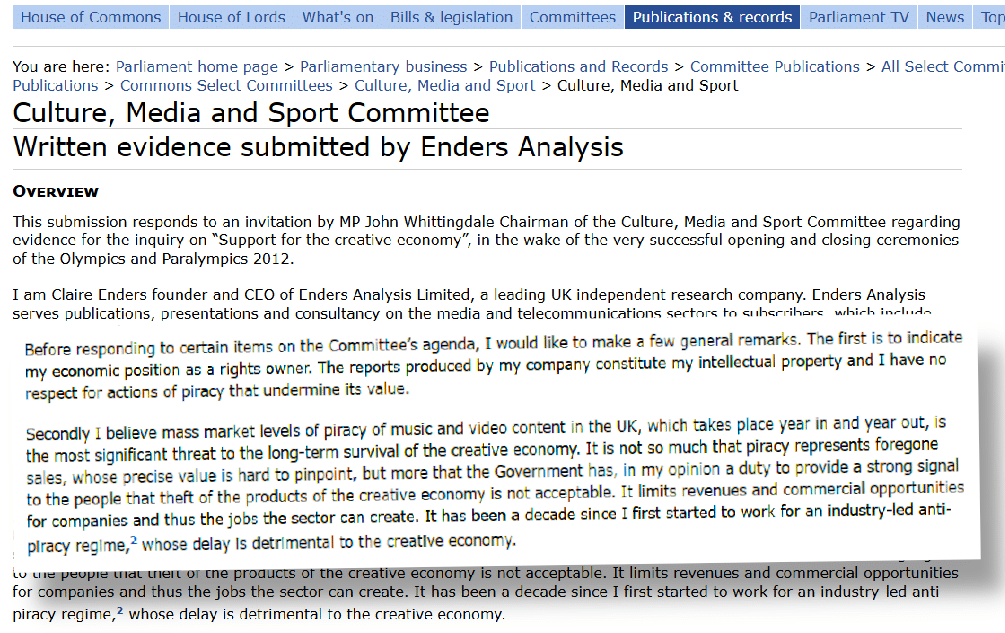
 In recent years, music and movie companies have filed several lawsuits against U.S. Internet providers, for failing to take action against pirating subscribers.
In recent years, music and movie companies have filed several lawsuits against U.S. Internet providers, for failing to take action against pirating subscribers.
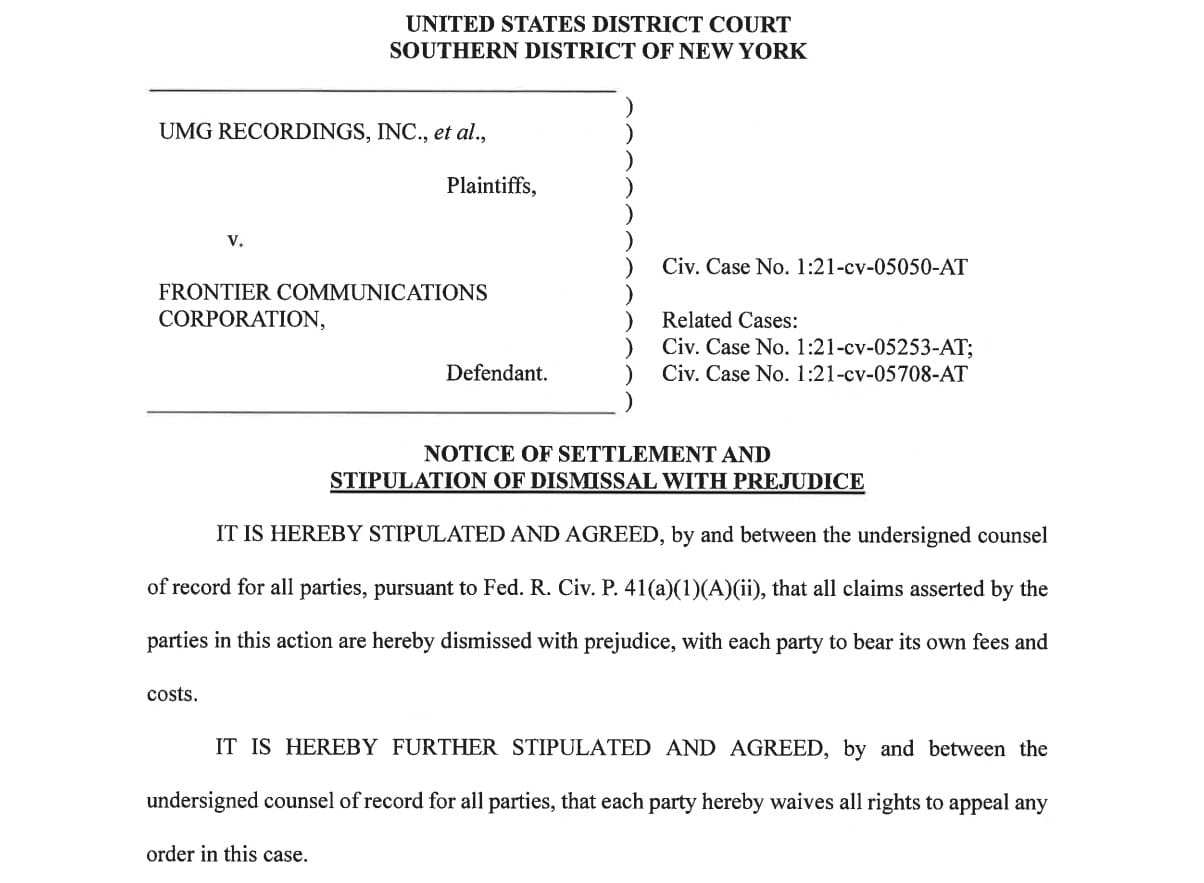

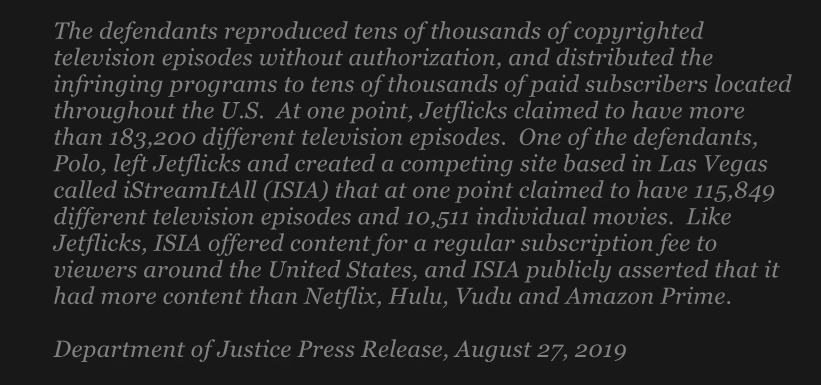

 Over the past few years, stream-ripping service Yout.com has fought legal battles on several continents.
Over the past few years, stream-ripping service Yout.com has fought legal battles on several continents.

 Three years ago, pirated Blu-ray copies of “Spider-Man: No Way Home”
Three years ago, pirated Blu-ray copies of “Spider-Man: No Way Home”
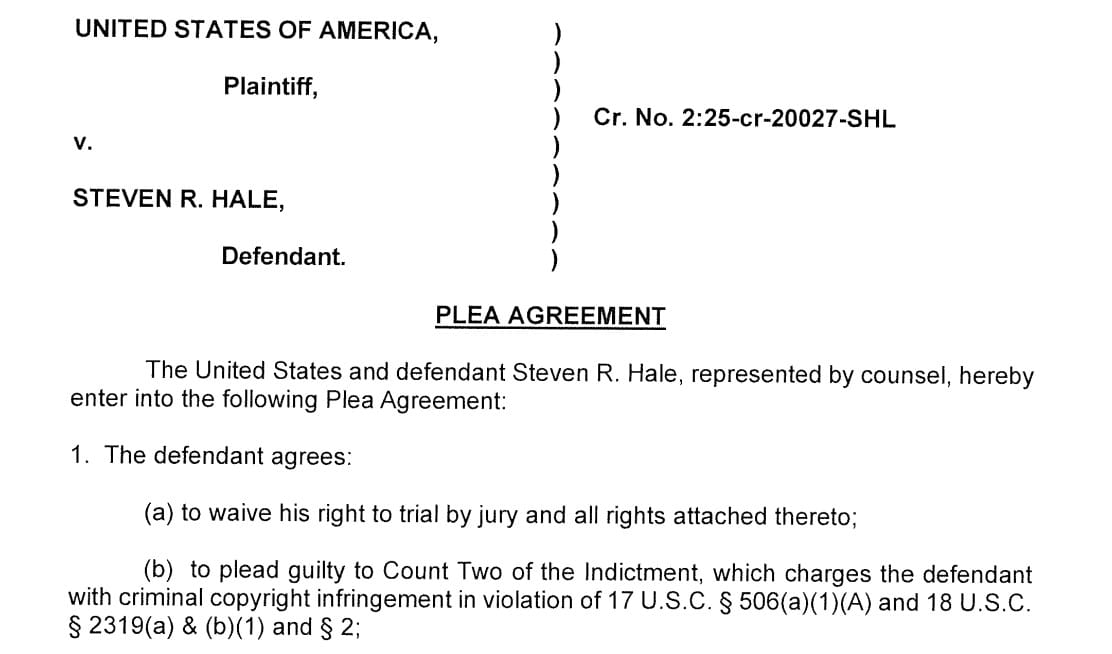
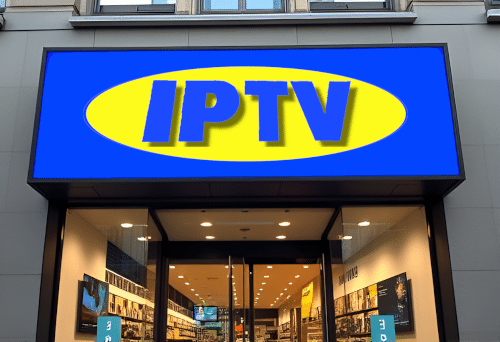 Describing Sweden as a country with a serious pirate IPTV problem is technically accurate, but lacking in all-important context.
Describing Sweden as a country with a serious pirate IPTV problem is technically accurate, but lacking in all-important context.
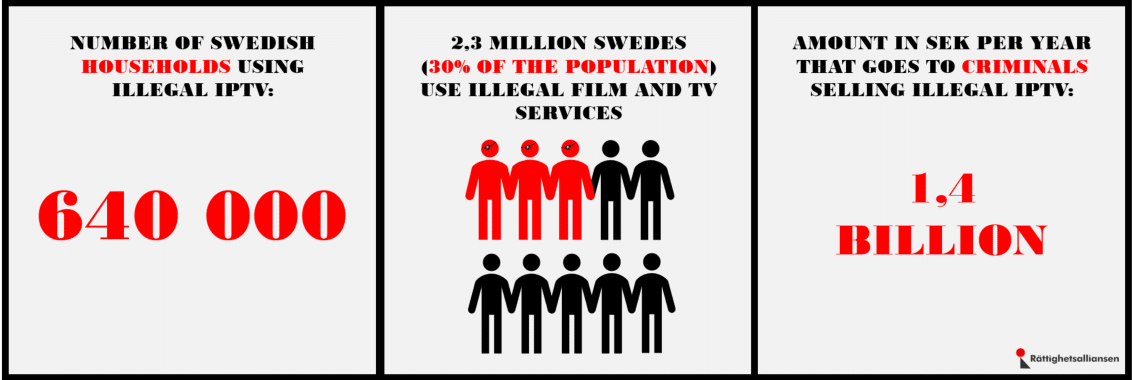
 In 2019, Internet provider Cox Communications lost its legal battle against a group of dozens of record labels, including Sony and Universal.
In 2019, Internet provider Cox Communications lost its legal battle against a group of dozens of record labels, including Sony and Universal.


 When rightsholders, broadcasters, and ISPs have a shared interest in the success of a multi-billion euro broadcasting rights deal, there’s no dispute over the need for a blocking order.
When rightsholders, broadcasters, and ISPs have a shared interest in the success of a multi-billion euro broadcasting rights deal, there’s no dispute over the need for a blocking order.